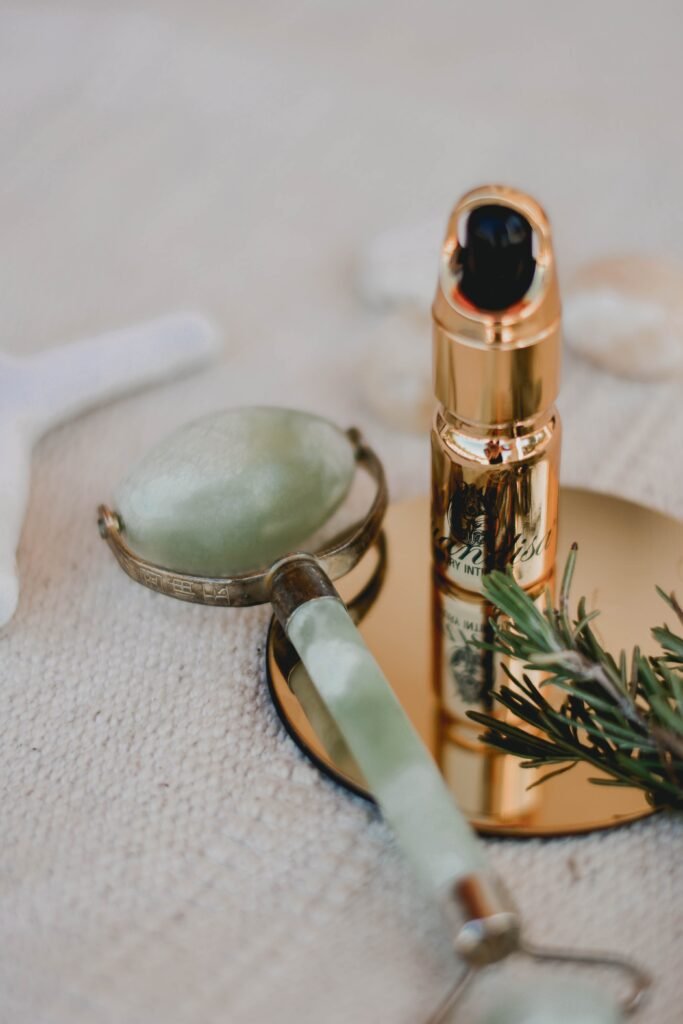If you’ve been grappling with acne-prone skin, you know the relentless struggle to find effective treatments. But fret not, for this article is here to lend a helping hand. Delving into the world of skincare, we will explore various remedies and solutions that can work wonders for your skin. From tried-and-tested over-the-counter products to cutting-edge dermatological procedures, discover the path to a clearer, smoother complexion. So bid farewell to those stubborn breakouts, because a journey towards healthier skin awaits you.
Topical Treatments
Salicylic Acid
Salicylic Acid is one of the most popular and effective topical treatments for acne-prone skin. It works by exfoliating the skin and unclogging the pores, which helps to prevent breakouts. Salicylic acid is especially effective for those with oily skin since it helps to control oil production. It is available in various forms such as cleansers, toners, and spot treatments. When using salicylic acid, it is important to start with a lower concentration and gradually increase to avoid any irritation or dryness.
Benzoyl Peroxide
Another common topical treatment for acne-prone skin is benzoyl peroxide. It is known for its antibacterial properties, which help to kill the bacteria that cause acne. Benzoyl peroxide also helps to unclog pores and reduce inflammation. It is available in different strengths, ranging from 2.5% to 10%. It is recommended to start with a lower concentration and gradually increase, as higher concentrations may cause dryness and irritation. Benzoyl peroxide can be found in various forms such as cleansers, gels, creams, and spot treatments.
Retinoids
Retinoids are derivatives of vitamin A and are highly effective in treating acne-prone skin. They work by speeding up cell turnover, preventing the buildup of dead skin cells that can lead to clogged pores. Retinoids also help to reduce inflammation and promote collagen production, which can improve the overall appearance of the skin. Retinoids are available both over-the-counter and by prescription. It is important to start with a lower concentration and gradually increase as these treatments can cause dryness and peeling. It is best to use retinoids at night and always follow up with sunscreen during the day, as they can increase sun sensitivity.
Tea Tree Oil
Tea tree oil is a natural remedy that has been used for centuries to treat various skin conditions, including acne. It has antimicrobial properties that help to kill the bacteria that cause acne. Tea tree oil also has anti-inflammatory properties, which can reduce redness and swelling. When using tea tree oil, it is important to dilute it with a carrier oil such as jojoba oil or coconut oil, as it can be too harsh on the skin when used undiluted. Tea tree oil can be applied directly to the affected areas or added to skincare products such as cleansers and toners.
Sulfur
Sulfur is another topical treatment that is effective in treating acne-prone skin. It helps to reduce oiliness, unclog pores, and kill bacteria. Sulfur also has anti-inflammatory properties, which can help to reduce redness and swelling. It is available in different forms such as creams, masks, and spot treatments. When using sulfur, it is important to follow the instructions and not leave it on the skin for too long, as it can cause dryness and irritation.
Oral Medications
Antibiotics
In some cases, oral medications may be prescribed to treat acne-prone skin. Antibiotics are often prescribed to kill the bacteria that cause acne and reduce inflammation. They can be taken orally or applied topically in the form of gels or creams. It is important to follow the prescribed dosage and duration of treatment, as long-term use of antibiotics can lead to bacterial resistance. It is also important to note that antibiotics can cause side effects such as upset stomach and yeast infections.
Hormonal Therapy
Hormonal therapy is often recommended for individuals with hormonal acne, which is acne that is caused by hormonal imbalances. Hormonal therapy can include birth control pills, spironolactone, or other medications that regulate hormone levels. These treatments work by reducing the production of sebum, which can help to prevent breakouts. It is important to consult a healthcare professional before starting hormonal therapy, as these medications can have side effects and may not be suitable for everyone.
Isotretinoin
Isotretinoin, also known as Accutane, is a powerful oral medication that is reserved for severe cases of acne-prone skin. It is usually prescribed when other treatments have failed to provide desired results. Isotretinoin works by reducing the production of oil, preventing the formation of new acne lesions, and shrinking existing ones. It is typically taken for a period of four to six months. However, isotretinoin can have serious side effects and requires close monitoring by a healthcare professional. It is crucial to follow all instructions and precautions while taking isotretinoin.

Skin-Cleansing Practices
Gentle Cleansers
Proper skin cleansing is essential for acne-prone skin. Using a gentle cleanser twice a day helps to remove dirt, oil, and dead skin cells without stripping the skin’s natural moisture. Look for cleansers that are specifically formulated for acne-prone skin and avoid harsh ingredients such as sulfates and alcohol. It is also important to avoid scrubbing the skin too aggressively, as this can irritate the skin and worsen acne. Instead, gently massage the cleanser into the skin using circular motions and rinse thoroughly with lukewarm water.
Exfoliation
Exfoliation is a crucial step in the skincare routine for acne-prone skin. It helps to remove dead skin cells and unclog pores, preventing the formation of new breakouts. However, it is important to choose gentle exfoliants that do not cause irritation or inflammation. Chemical exfoliants such as alpha hydroxy acids (AHAs) and beta hydroxy acids (BHAs) are effective in exfoliating the skin without scrubbing. These ingredients help to dissolve the bonds that hold dead skin cells together, revealing a smoother and clearer complexion. It is recommended to exfoliate 1-2 times a week to avoid over-exfoliation.
Oil-Controlling Products
Controlling excess oil is crucial for acne-prone skin. Look for skincare products that are specifically formulated to control oil production without drying out the skin. Oil-controlling cleansers, toners, and moisturizers can help to regulate sebum production, reducing the likelihood of clogged pores. It is important to look for non-comedogenic products that do not clog the pores or contribute to breakouts. Additionally, blotting papers can be used throughout the day to absorb excess oil and prevent it from accumulating on the skin.
Natural Remedies
Aloe Vera
Aloe vera is a natural remedy that has soothing and healing properties, making it beneficial for acne-prone skin. It helps to reduce inflammation, promote wound healing, and prevent infection. Aloe vera gel can be directly applied to the affected areas or used in skincare products such as cleansers and moisturizers. It is important to choose pure aloe vera gel without added fragrances or additives, as these can irritate the skin.
Green Tea
Green tea is not only a refreshing beverage but also a natural remedy for acne-prone skin. It contains antioxidants and anti-inflammatory compounds that help to reduce redness and inflammation associated with acne. Green tea can be used topically by applying cooled green tea bags to the affected areas or using skincare products that contain green tea extract. It can also be consumed as a tea for its internal benefits.
Honey
Honey is a natural ingredient with antibacterial and anti-inflammatory properties, making it effective for treating acne-prone skin. It helps to kill bacteria, reduce inflammation, and promote healing. Raw honey can be directly applied to the affected areas as a spot treatment or used as a face mask. When choosing honey, opt for raw and unfiltered varieties for maximum benefits.
Apple Cider Vinegar
Apple cider vinegar is a natural remedy that has antibacterial and exfoliating properties, making it beneficial for acne-prone skin. It helps to kill bacteria, remove excess oil, and unclog pores. Apple cider vinegar should be diluted with water before applying it to the skin to avoid irritation or burning. It can be used as a toner by mixing equal parts of apple cider vinegar and water, or added to bathwater for a soothing effect.

Lifestyle Changes
Diet
While diet alone may not be the root cause of acne, certain foods can exacerbate breakouts in individuals with acne-prone skin. It is important to maintain a balanced diet that includes plenty of fruits, vegetables, whole grains, lean proteins, and healthy fats. Avoid consuming excessive amounts of dairy products, sugary foods, and processed foods, as they have been linked to increased sebum production and inflammation. Drinking an adequate amount of water and staying hydrated is also important for maintaining healthy skin.
Stress Management
Stress can have a negative impact on acne-prone skin. It can trigger hormonal imbalances and increase inflammation, leading to breakouts. Therefore, managing stress is essential for maintaining clear skin. Engaging in stress-reducing activities such as exercise, meditation, deep breathing exercises, and spending time with loved ones can help to alleviate stress and promote overall well-being. It is important to find healthy coping mechanisms that work for you and incorporate them into your daily routine.
Proper Skincare Routine
Establishing a proper skincare routine is crucial for acne-prone skin. This includes cleansing, toning, moisturizing, and protecting the skin. Choose products that are formulated for acne-prone skin and are free from comedogenic ingredients. Additionally, always remove makeup before going to bed and avoid touching your face throughout the day to prevent the transfer of dirt and bacteria onto the skin. Lastly, ensure to follow a consistent routine and give it time to show results, as consistency is key when it comes to skincare.
Dermatologist Procedures
Chemical Peels
Chemical peels are cosmetic procedures performed by dermatologists to improve the appearance of acne-prone skin. They work by applying a chemical solution to the face, which causes the skin to exfoliate and peel off, revealing smoother and clearer skin underneath. Chemical peels can help to reduce acne lesions, fade acne scars, and improve overall skin texture and tone. It is important to consult a dermatologist to determine the type and strength of chemical peel suitable for your skin.
Microdermabrasion
Microdermabrasion is a non-invasive procedure that exfoliates the skin and removes dead skin cells using a diamond-tipped wand or fine crystals. It helps to unclog pores, reduce the appearance of acne scars, and improve overall skin texture. Microdermabrasion stimulates collagen production, which can lead to firmer and smoother skin. Multiple sessions may be required to achieve desired results, and it is important to follow post-treatment care instructions provided by the dermatologist.
Laser Therapy
Laser therapy is a treatment option for individuals with acne-prone skin who have not responded well to other treatments. It uses laser technology to target and destroy the bacteria that cause acne, reduce inflammation, and stimulate collagen production. Laser therapy can also help to improve the appearance of acne scars. It is a safe and effective procedure when performed by a trained dermatologist. However, it is important to note that laser therapy may require multiple sessions and may have some downtime and side effects.

Importance of Sun Protection
Sunscreen
Sun protection is crucial for acne-prone skin, as sun exposure can lead to inflammation and hyperpigmentation, worsening acne and acne scars. It is important to use a broad-spectrum sunscreen with an SPF of 30 or higher every day, regardless of the weather conditions. Look for non-comedogenic sunscreens that do not clog the pores and are specifically formulated for acne-prone skin. Apply sunscreen generously to all exposed areas of the skin and reapply every two hours or after sweating or swimming.
Avoiding Tanning Beds
Tanning beds emit harmful ultraviolet (UV) radiation, which can damage the skin and increase the risk of skin cancer. Tanning beds can also worsen acne and skin inflammation. It is important to avoid the use of tanning beds and opt for safer alternatives such as self-tanning lotions or spray tans if you desire a bronzed complexion. Embrace your natural skin tone and prioritize its health and well-being.
Preventing Acne Scarring
Avoid Picking or Popping Pimples
One of the most important steps in preventing acne scarring is to avoid picking or popping pimples. Picking at acne lesions can lead to inflammation, infection, and can cause the acne to spread. It also increases the risk of scarring as it disrupts the healing process. It is important to resist the temptation to pick at pimples and instead, focus on gentle skincare practices to promote healing and prevent further breakouts.
Promote Healing
Promoting healing is crucial in preventing acne scarring. Avoid harsh skincare products and treatments that can irritate or damage the skin. Instead, opt for gentle and soothing skincare products that promote healing and reduce inflammation. Applying topical treatments such as aloe vera gel or honey can help to speed up the healing process and minimize the likelihood of scarring. It is also important to protect the skin from sun exposure, as UV radiation can slow down the healing process and increase the risk of hyperpigmentation.
Consult a Dermatologist
If acne scarring is a concern, it is important to consult a dermatologist who can provide professional advice and recommend appropriate treatments. Dermatologists have access to advanced procedures such as chemical peels, microdermabrasion, and laser therapy, which can help to minimize the appearance of acne scars. They can also provide guidance on skincare practices and recommend products that are suitable for your specific skin type and concerns.
In conclusion, effective treatments for acne-prone skin include topical treatments such as salicylic acid, benzoyl peroxide, retinoids, tea tree oil, and sulfur. Oral medications such as antibiotics, hormonal therapy, and isotretinoin may also be prescribed in severe cases. Skin-cleansing practices involving gentle cleansers, exfoliation, and oil-controlling products are essential. Natural remedies like aloe vera, green tea, honey, and apple cider vinegar can provide additional benefits. Lifestyle changes such as maintaining a healthy diet, managing stress, and following a proper skincare routine contribute to the overall improvement of acne-prone skin. Dermatologist procedures such as chemical peels, microdermabrasion, and laser therapy can provide further treatment options. Sun protection through the use of sunscreen and avoiding tanning beds is crucial, and preventing acne scarring involves avoiding picking or popping pimples, promoting healing, and consulting a dermatologist for professional advice. By incorporating these treatments and practices into your skincare routine, you can effectively manage and improve acne-prone skin.
Losing weight and keeping it off can be a challenge. I’m here to show you good-tasting foods and drinks that help you lose weight, and are enjoyable to eat.




